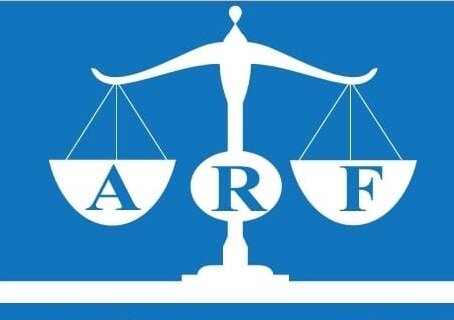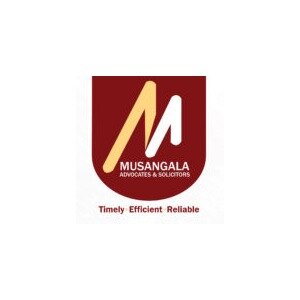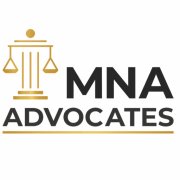Best Education Law Lawyers in Uganda
Share your needs with us, get contacted by law firms.
Free. Takes 2 min.
Or refine your search by selecting a city:
List of the best lawyers in Uganda
About Education Law in Uganda
Education Law in Uganda encompasses the legal principles and regulations governing the education system. It outlines the rights and responsibilities of students, teachers, educational institutions, and the government. This field of law is crucial for ensuring access to quality education, maintaining educational standards, and resolving disputes that arise within the educational sector. The Education Act and other related legislations form the backbone of education law in Uganda, establishing frameworks for curricula, teacher qualifications, school management, and student welfare.
Why You May Need a Lawyer
There are several situations in which individuals or institutions might require legal assistance in the field of Education Law in Uganda:
- Educational Disputes: Conflicts may arise between students, parents, and educational institutions regarding admissions, disciplinary measures, or academic evaluations.
- Special Needs Education: Families with children who have special educational needs might face challenges in obtaining appropriate educational services and accommodations.
- Teacher and Staff Rights: Issues related to employment contracts, unfair dismissal, or discrimination in educational settings often require legal intervention.
- Compliance and Regulatory Issues: Schools and educational institutions may need legal advice in ensuring compliance with national education standards and regulations.
- School Safety and Liability: Legal advice may be necessary for cases involving accidents, injuries, or security concerns on school premises.
Local Laws Overview
Key aspects of local laws relevant to Education Law in Uganda include:
- The Education Act, 2008: This act establishes the framework for the management and operation of educational institutions, outlining roles and responsibilities for stakeholders in the education sector.
- Universal Primary Education (UPE) Policy: A government initiative aimed at providing free primary education to all children in Uganda.
- Teachers' Code of Conduct: Regulations governing the professional behavior and ethical standards for teachers and educational staff.
- Child Protection Laws: Legal provisions aimed at protecting children’s rights and ensuring their safety within educational environments.
- Higher Education Accreditation: Laws governing the accreditation and operation of tertiary institutions, ensuring they meet set educational standards.
Frequently Asked Questions
What is the role of a lawyer in educational disputes?
A lawyer can offer legal advice, represent parties in negotiations or court, and assist in resolving conflicts such as unfair disciplinary actions or admission denials.
Can parents legally challenge a school's disciplinary action?
Yes, parents can challenge school disciplinary actions if they believe the process was unfair or violated their child's rights.
What are the legal rights of teachers in Uganda?
Teachers have legal rights to fair employment practices, protection against discrimination, and to work in a safe environment, as per the Teachers' Code of Conduct and employment laws.
What should I do if my child needs special educational services?
Contact the school's administration to discuss available support programs and consider consulting with an education lawyer if your child’s needs are not being met.
Are private schools subject to the same regulations as public schools?
While private schools operate with some autonomy, they must comply with national education standards and regulations outlined in the Education Act.
How can I ensure a school complies with safety regulations?
Request a copy of the school’s safety protocols and report any safety concerns to the appropriate regulatory authorities or consult a lawyer for further action.
What legal provisions exist for inclusive education?
Uganda’s education policies promote inclusivity, mandating that schools accommodate students with diverse needs, supported by legal requirements for accessibility and specialized support.
How are school fees and expenses regulated?
Schools must comply with governmental guidelines on fees, and any disputes over fee regulations can be addressed through legal channels or regulatory bodies.
Is homeschooling legal in Uganda?
Yes, homeschooling is legal, but parents must ensure that their children receive a curriculum that meets national education standards.
Where can I get more information or assistance on Education Law?
Refer to governmental bodies, legal aid organizations, or consult with a lawyer specializing in Education Law for comprehensive guidance.
Additional Resources
For further assistance and information on Education Law in Uganda, consider reaching out to the following:
- Ministry of Education and Sports: The primary governmental body overseeing education policies and regulations.
- Uganda National Examination Board (UNEB): Regulates national examinations and assessments.
- UNICEF Uganda: Offers resources and advocacy for children’s education and rights.
- Uganda Law Society: Provides access to legal professionals specializing in education or child-related issues.
- Enabel in Uganda: Focuses on development cooperation, including educational support programs.
Next Steps
If you need legal assistance in Education Law, consider the following steps:
- Consult with a Lawyer: Seek a consultation with a legal expert in Education Law to discuss your situation and explore potential solutions.
- Gather Documentation: Collect all relevant documents pertaining to your case, such as correspondence with schools, contracts, and legal notices.
- Contact Relevant Authorities: Depending on the issue, you may need to reach out to the Ministry of Education or other educational bodies for advice or mediation.
- Educate Yourself: Familiarize yourself with the Education Act and relevant regulations to better understand your rights and responsibilities.
- Explore Mediation: Consider resolving disputes through mediation or alternative dispute resolution methods to avoid lengthy legal proceedings.
Lawzana helps you find the best lawyers and law firms in Uganda through a curated and pre-screened list of qualified legal professionals. Our platform offers rankings and detailed profiles of attorneys and law firms, allowing you to compare based on practice areas, including Education Law, experience, and client feedback.
Each profile includes a description of the firm's areas of practice, client reviews, team members and partners, year of establishment, spoken languages, office locations, contact information, social media presence, and any published articles or resources. Most firms on our platform speak English and are experienced in both local and international legal matters.
Get a quote from top-rated law firms in Uganda — quickly, securely, and without unnecessary hassle.
Disclaimer:
The information provided on this page is for general informational purposes only and does not constitute legal advice. While we strive to ensure the accuracy and relevance of the content, legal information may change over time, and interpretations of the law can vary. You should always consult with a qualified legal professional for advice specific to your situation.
We disclaim all liability for actions taken or not taken based on the content of this page. If you believe any information is incorrect or outdated, please contact us, and we will review and update it where appropriate.
Browse education law law firms by city in Uganda
Refine your search by selecting a city.

















